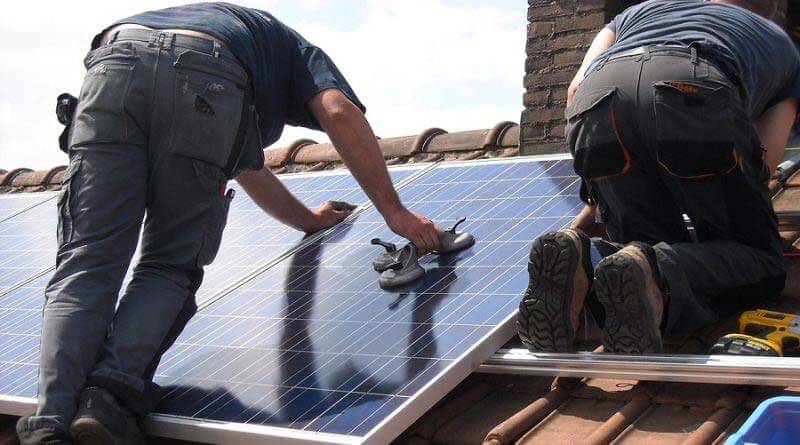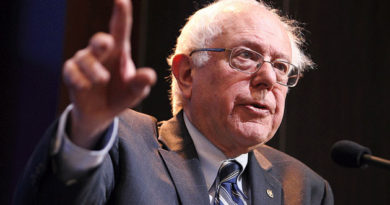Why A Carbon Tax Is Pro-Business
There’s a limited supply of oil, coal and natural gas left in the world. Eventually, we will run out. Experts estimate that could happen as early as 2067, well within most of our lifetimes. The problem is, these sources currently generate over 66% of the world’s energy and we don’t have viable options to replace them.
Eventually, an economical renewable energy source will be developed and the world will rapidly transition to it. The question is, will that technology be developed in America? Or will we yet again be dependent on foreign and potentially hostile nations to fulfill our energy needs?
Regardless of where you stand on climate change, these facts should concern you. Energy independence is a completely separate issue from climate change that Democrats and Republicans can rally around to solve.
So why haven’t we already developed the next generation of energy technologies?
The Market For Renewable Energy Is Broken
In a perfect free market, businesses balance potential costs with potential revenue when making investment decisions. This directs just the right amount of investment into all the right areas that our country needs. But sometimes, costs are felt by society that the business never feels. These costs are called negative externalities, and they distort the free market and business investment.
For example, a steel mill may spend $100,000 per month to operate, but it doesn’t pay the $5,000 monthly cost of asthma medicine expenses the family down the road must buy due to pollution exposure. If the steel mill had to incur this extra $5,000 in costs from damage they caused, the smart business decision may be to operate more efficiently and omit less pollution.
This is exactly what’s happening in the real world with carbon emissions. Carbon emissions have been shown to cause negative externalities such as higher medical costs among other things. The EPA estimates that all the negative externalities of carbon emissions, not just the health-related ones, totals around $37 per metric ton of CO2 emitted.
Because the financial cost for emitting CO2 does not include the cost of these negative externalities, businesses have not felt any pressure to limit emissions that they otherwise would have felt in a perfect market. This has stunted the growth of private investment into renewable energy and green technology. The renewable energy industry would probably be flourishing today — without any reliance on government grants or tax breaks — had our markets been working more efficiently.
We’ve had a government-led renewable energy initiative for at least three decades and we still don’t have a viable source of renewable energy to show for it. We could debate why things haven’t worked out — not enough money, misallocating the money, etc — but the fact is that we just haven’t had success, and doing the same thing while expecting different results is the definition of insanity.
A Carbon Tax Is The Capitalist Solution
Capitalism works because it allocates resources better than the government, and it does that through pricing things correctly. Considering that the world is quite literally running out of energy, we need to make sure the market is pricing energy correctly if we want enough money to flow into renewable energy development.
If businesses who burn fossil fuels had to bear the true cost of their CO2 emissions, the economy would be stronger AND investment for renewable energy would grow faster than any government grant or tax break could ever achieve. For you fiscal conservatives out there, that means a revenue neutral carbon tax is pro-market and pro-business.
The typical argument against a carbon tax is that businesses can’t afford this additional tax. This is disrespectful to the ingenuity of American entrepreneurs and goes against the very idea of capitalism. When confronted with rising costs, businesses don’t just sit back and accept it– they figure out a way to overcome it fast before a competitor does and puts them out of business. Businesses will try to dodge a carbon tax just like they try to dodge other taxes– except dodging this tax is a good thing because it means they’re lowering their CO2 emissions.
Regardless, this isn’t simply raising costs, this is correcting the cost of carbon emissions up to what it would be in a perfectly functioning market.
To address the concern of adding an additional tax to the books, economists have suggested combining a carbon tax with an equally sized reduction in corporate taxes. This would make sure costs don’t rise for businesses and seems like a smart bipartisan compromise.
What A Bipartisan Carbon Tax Would Look Like
None of this matters if all we do is talk. We need real-world implementation. In order to make a carbon tax a reality, it needs to appeal to both Democrats and Republicans.
Here’s how a carbon tax could be structured to have broad bipartisan appeal while also maximizing the benefits and minimizing any negative consequences–
We need to determine the correct dollar amount
A carbon tax is only effective if we accurately price the social cost of carbon emissions. The EPA currently estimates it at $37 per metric ton, but scientists at Stanford suggest it may be as high as $220 per metric ton. If we set the price too low, the incentives to develop new technologies won’t be strong enough, and if we set it too high we’ll freeze economic growth and limit the money available to be invested in renewable energy in the first place.
One way we can limit any potential missteps is by looking to places that already implemented a carbon tax and saw positive economic results. Take British Columbia for example. They started with a $10 per metric ton carbon tax in 2008 and increased it by $5 each year until it hit $30 in 2012. Their economy grew at the same pace as rest of Canada while consuming 18.8% less fuel per person. The additional tax collected from the carbon tax also allowed British Columbia to lower their income and corporate tax rates, making their corporate tax rate the lowest in all G7 nations.
A Carbon Tax needs to be off-set by reducing taxes elsewhere
Increasing taxes is neither politically appealing nor economically stimulating. By reducing taxes elsewhere, we could keep the nation’s tax burden at the same level. Therefore it makes sense to have a carbon tax be a part of a larger corporate tax reform plan.
Ideally, we would lower the corporate tax rate from 39% to 25%. To offset the lower rate, we’d eliminate most corporate tax deductions and loopholes, and add a carbon tax.
Give businesses enough time to prepare
Businesses operate on future expectations. If they know a carbon tax is happening in the future, you better believe they will be working to avoid that extra cost as soon as possible. A carbon tax does not need to be implemented immediately in order to be effective. The carbon tax should take effect far enough into the future so companies have time to figure out how to lower their CO2 emissions efficiently, but not so long as to give them the luxury of procrastination.
British Columbia gave their businesses four months to prepare for their carbon tax and ramped up to the full tax over a four-year period. In order to maximize renewable energy investment, it may be a better idea to give businesses more than four months to prepare for a carbon tax but ramp up to the full tax rate faster once it’s in place.
We Can Do This!
Even under small-government ideology, correcting for market imbalances is an important government function in a capitalist society. Implementing a carbon tax would fall under that role.
We as a nation have faced intense challenges before, from world wars to cold wars, and the forces of capitalism saved us then. They will save us again, if we allow them.



